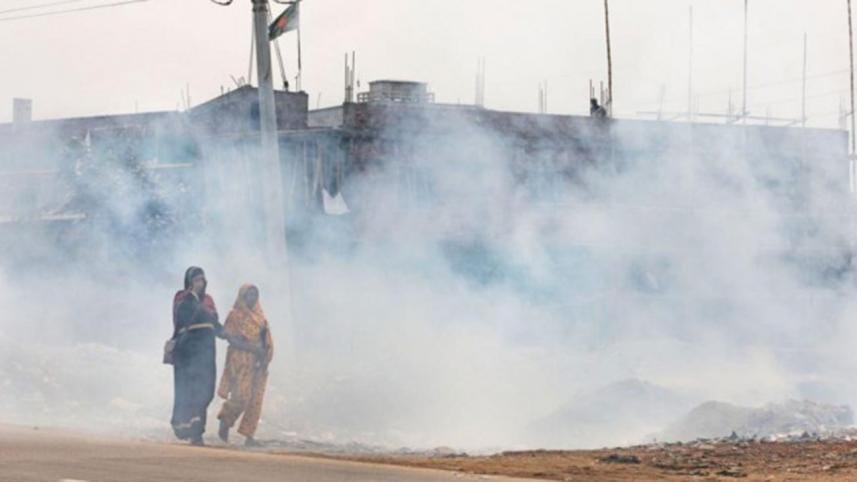Dhaka’s air quality still “unhealthy”

Dhaka may no longer be the city with world's most polluted air, but the densely populated capital's air quality still remains "unhealthy".
With an air quality index (AQI) score of 119 at 9:15am today, Dhaka ranked seventh in the list of world cities with worst air quality.
Indonesia's Jakarta, Pakistan's Lahore and UAE's Dubai occupied the first three spots, with AQI scores of 171, 163 and 155, respectively.
An AQI between 101 and 200 is considered "unhealthy", particularly for sensitive groups.
Similarly, an AQI between 201 and 300 is said to be "poor", while a reading of 301 to 400 is considered "hazardous", posing serious health risks to residents.
AQI, an index for reporting daily air quality, is used by government agencies to inform people how clean or polluted the air of a certain city is, and what associated health effects might be a concern for them.
In Bangladesh, the AQI is based on five criteria pollutants -- Particulate Matter (PM10 and PM2.5), NO2, CO, SO2 and Ozone.
Dhaka has long been grappling with air pollution issues. Its air quality usually turns unhealthy in winter and improves during the monsoon.
A report by the Department of Environment (DoE) and the World Bank in March 2019 pointed out that the three main sources of air pollution in Dhaka "are brick kilns, fumes from vehicles and dust from construction sites".
As per the World Health Organization (WHO), air pollution kills an estimated seven million people worldwide every year, largely as a result of increased mortality from stroke, heart disease, chronic obstructive pulmonary disease, lung cancer and acute respiratory infections.



 For all latest news, follow The Daily Star's Google News channel.
For all latest news, follow The Daily Star's Google News channel.
Comments